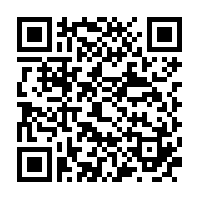Summary (English and Dawat ni Zaban) and Photos - 8th Waaz
22 November 2016
On 9th Muharram, Syedna Fakhruddin TUS delivered the 8th waaz for Ashara1438H. Maulana addressed Mumineen as Haq ni Dawat na farzando (children of the true Dawat), Dawat which Quran Majeed states is for ‘Him’. Panjetan, who established Dawat, arbab-us-siqd (masters of truth), as Taher Saifuddin Aqa states in a qasida, shaan of their like hasn’t occurred and nor will occur. Others left Rasulullah’s sunnat (practices), they left Ahle Bayt and safinatun najaat (ark of salvation), thus perished. “It isn’t surprising that those that perished, how did they perish, it is surprising that those that gained salvation, how they gained salvation.” Rasulullah clearly stated at Ghadeer-e-Khum that “amongst you, I am leaving two things, Quran and my progeny those of you that retain both won’t go astray.”
Maulana began the main bayaan by reciting the ayat “Invite to the way of your Lord with wisdom and good instruction” (ud‘u ila sabile rabbika bil-hikmati wal maw‘izatil hasanah – Surat al-Nahl: 125). He continued to explain that the first Imam was Adam-ul-Kulli who established Dawat of tawheed in this world as it was established in the spiritual world. Maulana then did bayaan of the Daur of previous 5 natiq-s: Adam, Nuh, Ibrahim, Moosa, Eisa. The names of their wasiy and anbiya in each Daur, their ages and the ages of their Daur. Finally, Maulana came to Rasulullah, who spent 13 years in Makkah and 10 years in Madina and established Dawat.
Maulana explained that in one context, hikmat is a reference to ilm and mawaizat hasana to amal. Hikmat can be translated as wisdom, knowledge or philosophy. Quran states that Allah Ta’ala grants hikmat to whom He wishes. The actions of a hakeem are not void of hikmat. Amirul Mumineen established Islam with his sword and sheathed the same sword for its preservation, this was hikmat. Muslimscholars admit in their books that if Ali had not done so, Islam would not be preserved. Then Amirul Mumineen came to zahiri khilafat and after his shahaadat, Hasan Imam signed a peace treaty with Muawiyah with hikmat, since lots of Ashaab were martyred and the intent was to safeguard the remaining ashaab. Rasulullah stated in Ghadeer-e-Khum, “Hasan and Husain are true Imams, whether sitting or standing”, reference to whether they establish truce with the enemy or go to war. Hasan Imam returned to Madina from Kufa and advised the residents of Kufa “take care of your neighbor, welcome your guests and maintain mohabbat of Nabi’s progeny.” Hasan Imam established Dawat from Madina and Muawiya was envious (“ankh ma rai pisai gai”). Husain Imam drew his word and did jihad, we remember him in every majlis. After Husain, Imam Ali Zainul Abedein returned to Madina and established Dawat. Imam Ismail was hidden, Imam Jafar-us-Sadiq sent Mohammed ibn Ismail to Iran. Then Fargana, then Silmiya in Syria where 3 mastureen Imams stayed, Maulana Burhanuddin built a masjid there. Then Mehdi Imam did zuhoor at Siijlmasa, and then Imamate proceeds to Qahera (Cairo). Finally, Tayyeb Imam went into seclusion.
Maulana then went through all 53 previous Duats, taking their name for barakat and doing a brief zikr. Du’aat will remain established until qayamat or until the return of Imam who takes back the amaanat he gave for safe keeping. Maulana referred to himself, Mamlook-e-Aale Mohammed (servant of the progeny of Mohammed), Taher Fakhruddin, waris of 53 Duat, establishes Imam-uz-Zaman’s Dawat. Calls Mumineen towards the mohabbat of Imam-uz-Zaman. “Syedna Qutbuddin prepared me, my life is sacrifice on Imam-uz-Zaman, ‘Dawat is for Him’, Mumineen, adhere to the 7 da’aim, do khidmat of Dawat, remain immersed in bandagi and zikr of Awliyullah, do zikr and maatam of Aqa Husain.” Maulana counseled with various teachings about how we should live our daily lives.
Maulana prayed hamd ibarat from Syedna Qutbuddin’s Risalah Barakaatu-irthid-Du’aat (1435H) which had been published as Syedna had pledged. Syedna stated that those who wish for a nuskha of the Risalat may araz and that a talkhis (summary) in English would also be published inshaallah.
He noted how tomorrow, we will come with lagan, remembering Husain’s hunger and thirst, to buy Jannat. Maulana completed on the doa that Syedna Qutbuddin prescribed when short on time, it is the most succinct dua: “Rabbana aatina fid-dunya hasanatan, wa fil aakhirate hasanatan, waqina azaban-naar berahmateka ya arhamar rahemeen.”
Maulana ended on the shahaadats of Imam Husain and Imam Hasan.


